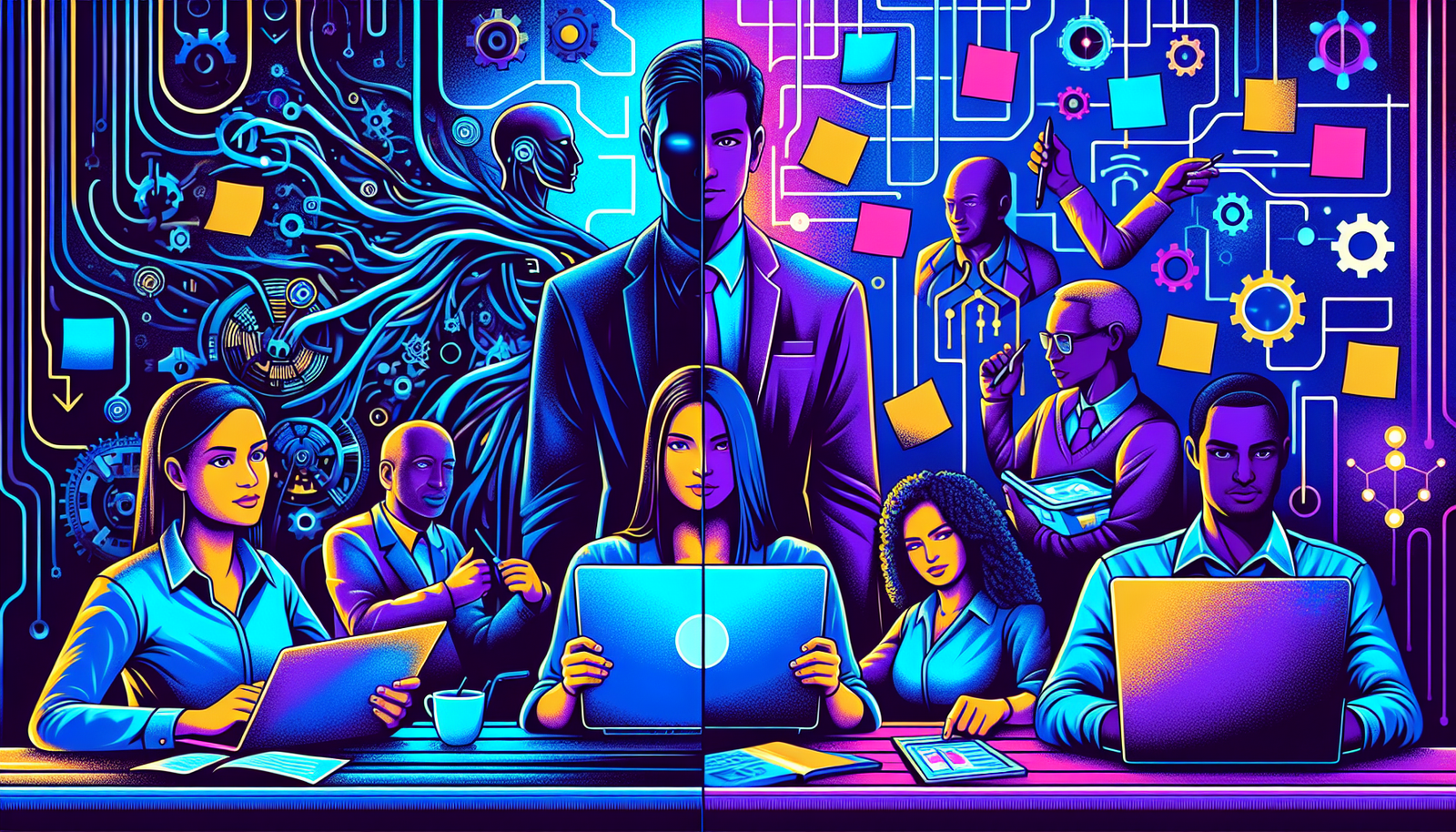The challenges of centralized artificial intelligence raise countless ethical and societal concerns. With the rise of this technology, the concentration of power in the hands of a few tech giants leads to potentially devastating consequences. This context fosters the emergence of systemic biases, discrimination, and intrusive surveillance on a global scale. The issue lies in the necessity to implement suitable structures to regulate and secure the use of AI. The legal and ethical challenges associated with managing ignominious risks require urgent and rigorous reflection. Innovative solutions must be considered to ensure a balanced evolution of these systems while protecting the interests of the community.
The challenges of centralized AI
The rapid rise of centralized artificial intelligence (AI) systems raises deep questions about their consequences for society. Major tech companies like Microsoft and Google now dominate the AI landscape, accumulating significant market shares and unprecedented volumes of data. This concentration of power risks compromising innovation, generating biases, and increasing social inequalities.
Monopoly and domination
The risk of a monopolistic concentration of AI remains concerning. Tech giants have unprecedented control over the market, allowing them to influence regulations in their favor. Emerging companies, lacking the necessary resources, struggle to compete. Their survival often depends on acquisition by these large companies, thereby accentuating the dominance of the few over the many.
Bias and discrimination
AI systems carry real risks of bias. Increasingly, organizations rely on algorithms to make crucial decisions, particularly in the fields of employment and credit. This mechanism, often opaque, can discriminate against certain populations based on age, ethnic origin, or geographic location. The consequences for marginalized communities are alarming, exacerbating social inequalities and enabling systemic discrimination.
Surveillance and privacy
The centralization of data by a few major players generates privacy concerns. The ability to monitor millions of individuals becomes possible through massive data collection and analysis. This phenomenon is not only dangerous in authoritarian regimes where abuses are common. Even in democratic societies, intrusion into privacy is becoming widespread, endangering individual freedom and the right to anonymity.
Solutions to consider
Governance and ethics
Establishing a rigorous governance of AI is essential. The principles of transparency, fairness, and security must guide the development of AI systems. Companies must be held accountable for their algorithms and the impacts they produce. This requires increased collaboration between industry stakeholders, regulators, and civil society to define clear ethical standards.
Decentralization as an alternative
Decentralization appears as a viable solution. Promoting decentralized AI systems allows for power distribution and limits abuses. By preventing a few companies from dominating the market, the diversity of applications and AI models will be encouraged. This will increase access and equity in the use of these technologies, ensuring a respectful approach to everyone’s rights.
Education and awareness
Raising awareness of AI and its challenges is a true necessity. Training users and professionals on the implications of artificial intelligence can reduce the risk of inappropriate use. Companies must focus on educating their employees to instill a culture of responsibility towards AI.
Regulation in the face of AI
The challenges posed by centralized AI require strict regulation. Establishing laws that govern the use of AI, specifically in sensitive areas, could prevent abuses. Initiatives like that of the CNIL in France aim to anticipate these risks to promote an ethical use of artificial intelligence. A solid legal framework could also ensure a balance between innovation and respect for fundamental values.
Transparency of algorithms
Ensuring transparency of algorithms is critical. Companies must account for the decision-making mechanisms of their AI systems. This demand for openness is a means to evaluate and correct potential biases. The publication of training data and results can serve as a foundation for effective oversight.
International collaboration
A global approach is required to counter the dangers of centralized AI. Governments, NGOs, and companies must collaborate internationally to share best practices. Thus, models of decentralization, regulation, and ethics could be developed and adopted globally, fostering responsible adoption of artificial intelligence.
Frequently asked questions
What are the main dangers associated with centralized AI?
The main dangers of centralized AI include the concentration of power among a few large companies, the risk of bias and discrimination in automated decisions, concerns about privacy and surveillance, as well as national security risks related to cyberattacks.
How can centralized AI exacerbate social inequalities?
When AI is in the hands of a few tech giants, it can lead to a monopoly on innovation, making access more difficult for small businesses or startups. This also results in a lack of diversity in AI solutions, leading to unevenly distributed opportunities.
What solutions can be implemented to regulate AI usage?
To regulate the use of AI, it is crucial to establish ethical governance that includes rules for transparency, security, and responsibility for AI users and developers.
How can decentralization minimize the risks of AI?
Decentralizing AI allows for distributing control and making technology accessible to a greater number of entities. This can help to reduce mass surveillance, avoid data manipulation, and promote collaborative innovation.
What roles do regulators play in managing the dangers of centralized AI?
Regulators must establish policies that protect users’ personal data, encourage competition in the AI sector, and monitor the impact of AI technologies on society to reduce biases and harmful practices.
What ethical practices should companies developing AI systems follow?
Companies should follow ethical practices such as transparency in data usage, implementing feedback mechanisms to detect and correct biases in their systems, and ensuring regular audits of their algorithms.
How can individuals protect themselves against the abuses of centralized AI?
Individuals can protect themselves by being aware of how their data is used, using privacy protection technologies, and supporting initiatives that promote digital education on the dangers of AI.






